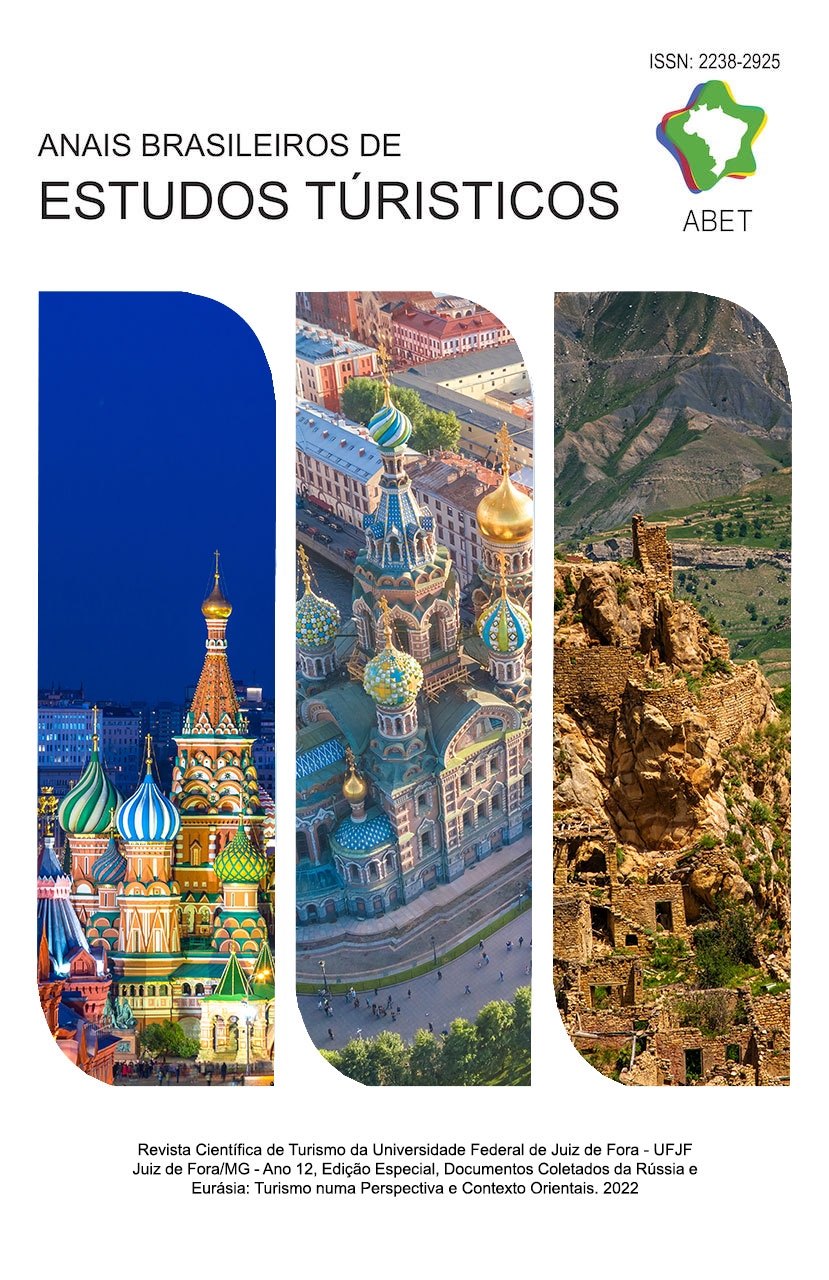Tourism and Sustainable Development in Russia: Current Challenges and Constraints
DOI:
https://doi.org/10.5281/zenodo.7151348Keywords:
Sustainable tourism development, Development, Sustainability, Tourism, Management System, RussiaAbstract
The sustainable tourism development has become a prerequisite for the industry functioning. Sustainable tourism is now seen as a logical response to a growing tourist flow, and as a result, to an excessive burden on the natural and historical and cultural environment of destinations. In Russia, sustainable development is a complex and painful issue. Ambiguity of responsibility areas and the lack of thoughtful and well-established regulatory mechanisms make the interaction between business and government in sustainable territory development a particularly difficult issue in Russia. That is why the purpose of this study is to reveal how the representatives of the tourism business understand the need for sustainable tourism development in Russia. The survey of business representatives conducted in the article made it possible to identify problems in understanding the essence of sustainable tourism development, and to identify the sustainable tourism trends, which in many ways demonstrate the growing need for the transition of the tourism industry in Russia to the principles of sustainable development. One of the important problems of sustainable tourism development in Russia is the professional personnel training. For this purpose, the authors have developed a combined model of educational activities in the "challenges-needs" system for the sustainable development of hospitality industry. It is intended for stakeholders of the tourism market and is aimed at raising awareness and building sustainable interaction.
Downloads
Downloads
Published
How to Cite
Issue
Section
License
Copyright (c) 2022 Anais Brasileiros de Estudos Turísticos

This work is licensed under a Creative Commons Attribution 4.0 International License.
This journal provides immediate open access to its content, following the principle that providing free scientific knowledge to the public provides greater democratization of world knowledge.
Authors must agree to the following terms relating to copyrights:
(a) Authors keep all copyright and grant the to the journal the right of first publication, with the work simultaneously licensed under the Creative Commons Attribution License that allowing job sharing with recognition of authorship of the work and initial publication in this journal.
(b) Authors are allowed to assume additional contracts separately, for non-exclusive distribution of the version of the work published in this journal (e.g. publish in institutional repository or book chapter), with recognition of authorship and initial publication in this magazine.
(c) Authors are allowed and are encouraged to publish and distribute their work online (e.g. in institutional repositories or on your personal page) since they do not do this before or during the editorial process, as this can generate productive interchange, as well as increase the impact and citation of work aired. (See Effect of Free Access).















